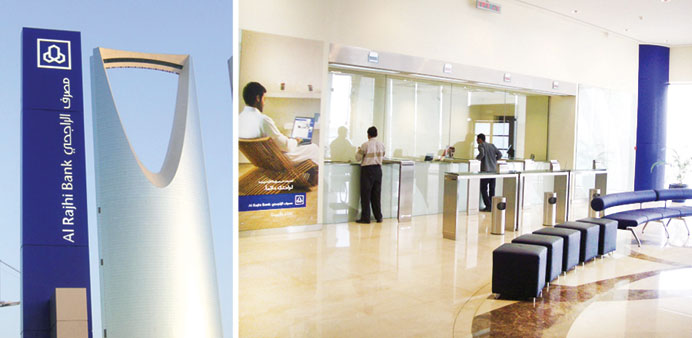Saudi Arabian Islamic banks are facing slower profit growth this year as a crackdown on illegal workers in the kingdom weighs on the construction industry and economic expansion.
Bank provisions will increase about 16% in 2014 as building firms struggle to repay loans because of labour shortages, NCB Capital forecasts show. Fourth-quarter net income at Al-Rajhi Bank, the world’s biggest Shariah-compliant lender by capital, dropped 19%. Riyad Capital said in a January 19 note “massive debt write-offs” probably caused the fall.
Saudi Arabia started deporting undocumented migrants in April as it seeks to create jobs for citizens. The policy probably cut economic growth 0.2 percentage points to 4% in 2013 with construction among the worst affected industries, said John Sfakianakis, chief investment officer at Riyadh-based investment company MASIC. Loans to contractors account for about 7% of total bank credit, according to central bank data.
“We are already seeing shortages in the labour market having an impact on the construction sector,” Mahmood Akbar, Jeddah-based equity analyst at NCB Capital, said on January 23. “That will flow through to cash collection at some of the construction companies, and as a result their ability to service their loans.”
Provisions at Al-Rajhi climbed 15% in the first nine months of 2013, according to data compiled by Bloomberg. That compares with a 6% increase at Dubai Islamic Bank PJSC, the oldest Islamic bank, in the period.
Non-government lending by Saudi Arabian banks gained 12% in the 11 months to November, according to central bank data.
The loan growth of the past two years is contributing to higher provisions at Saudi Arabian banks, according to Asim Bukhtiar, Riyadh-based head of research at Riyad Bank.
“It’s normal after a growth cycle to see some deterioration in asset quality and because of that provisioning should be higher,” he said by the phone January 25.
Saudi Arabia’s crackdown on illegal workers followed the introduction in May 2011 of a new system of fees and rewards for businesses based on how many locals they employed. About 1mn people have left the country, according to Labour Ministry estimates.
Abdullah AM Al-Khodari Sons Co, a Saudi Arabian contracting company, reported an almost 70% drop in profit in the fourth-quarter of 2013. The company said staffing costs increased 28% and banks are charging more to lend to the construction industry.
“The government measures in the labour market have had a visible short-term impact on the economy,” Sfakianakis said by phone January 27. The economy will adjust and contractors should be able to source enough legal workers by the end of 2014 to resume development work, he said.
Al-Rajhi reported net income of 1.55bn riyals ($413mn) for the fourth quarter of 2013, down from 1.91bn riyals a year earlier. The bank’s preliminary results suggest a “shocking” 1bn riyals in additional provisions, Riyad Capital said in its note.
A spokesman for the bank didn’t immediately respond to calls and an e-mail seeking comment.
Banque Saudi Fransi, the fifth-largest bank in the country by market value, reported a 66% drop in fourth quarter net income. Arab National Bank reported net income of 537mn riyals, missing analyst estimates. No one was immediately available at either bank to respond to calls and e- mails seeking comment.
NCB Capital expects provisioning at 10 of Saudi Arabia’s 12 banks to rise to 6.3bn riyals by the end of 2014.
“We don’t think the labour issue will go away in 2014,” said Riyad Bank’s Bukhtiar. “It will continue to overhang bank earnings.”

